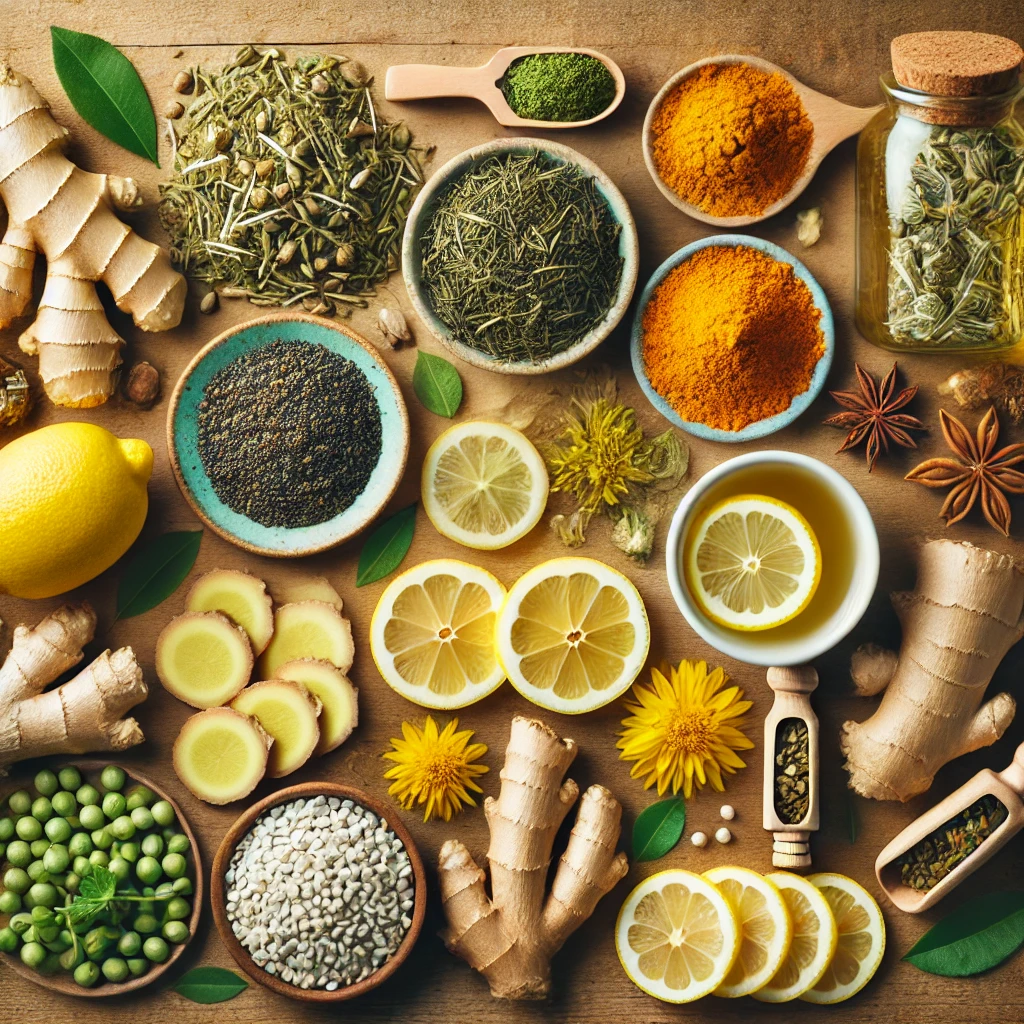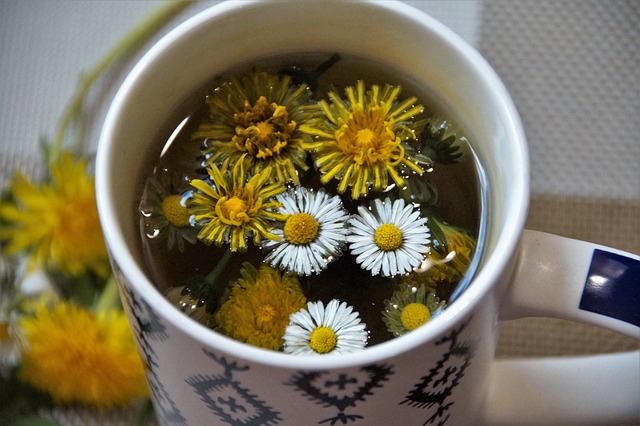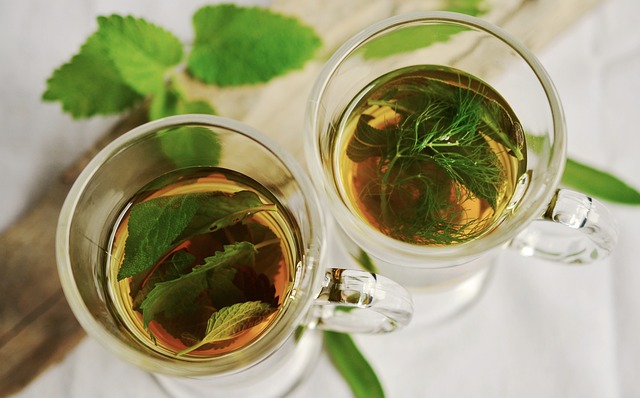
Detox tea is a type of herbal tea claimed to have detoxifying effects, often used to help cleanse the body of toxins and improve health.
2. How does detox tea work?
Detox teas typically contain herbs with diuretic, laxative, or stimulant properties, which promote increased urination and bowel movements to remove waste.
3. Are detox teas effective for weight loss?
Detox teas may cause temporary weight loss due to water loss, but they are not effective long-term solutions for weight management.
4. What are the common ingredients in detox teas?
Common ingredients include dandelion root, ginger, senna, green tea, and peppermint.
5. Can detox tea help with bloating?
Some detox teas may help reduce bloating by promoting digestion and reducing water retention.
6. Is detox tea safe to drink daily?
Drinking detox tea daily is not recommended as many contain laxatives that can lead to dehydration, electrolyte imbalance, and dependence.
7. Can detox teas cause side effects?
Yes, detox teas can cause side effects such as dehydration, diarrhea, cramps, and electrolyte imbalances.
8. What is the best time to drink detox tea?
The best time varies, but many recommend drinking detox tea in the morning or before bed to aid digestion.
9. Do detox teas help cleanse the liver?
There is no scientific evidence that detox teas cleanse the liver. The liver naturally detoxifies the body without needing special teas.

10. Can detox tea improve skin health?
Some people report better skin after drinking detox teas, but there is limited scientific evidence to support this claim.
11. What are the benefits of detox teas?
Claimed benefits include improved digestion, reduced bloating, increased energy, and weight loss, though evidence is limited.
12. Are there any risks associated with detox teas?
Yes, risks include dehydration, nutrient deficiencies, and possible interactions with medications.
13. Can detox tea cause dehydration?
Yes, many detox teas have diuretic and laxative effects that can lead to dehydration.
14. How long should you drink detox tea?
It’s generally recommended to drink detox tea for no more than a week. Prolonged use can lead to health issues.
15. Can pregnant women drink detox tea?
Pregnant women should avoid detox teas, especially those containing stimulants or laxatives, as they can be harmful.
16. Is it safe to drink detox tea while breastfeeding?
Breastfeeding women should consult a doctor before consuming detox teas due to potential effects on the baby.
17. Can detox tea affect digestion?
Detox teas may help with digestion by stimulating bowel movements, but excessive use can cause digestive issues.
18. Do detox teas interact with medications?
Yes, detox teas can interact with medications, especially those metabolized by the liver or affecting hydration and electrolyte balance.
19. Is there any scientific evidence supporting detox teas?
Most claims about detox teas lack robust scientific evidence. The body naturally detoxifies itself without needing supplements.

20. How much detox tea should I drink per day?
It’s generally advised to follow the product’s instructions, but drinking more than one cup per day is not usually recommended.
21. What are the alternatives to detox teas?
Alternatives include drinking plenty of water, eating a balanced diet rich in fiber, and exercising regularly.
22. Can detox tea cause nutrient deficiencies?
Prolonged use of detox teas with laxative properties can lead to nutrient deficiencies due to rapid food transit through the digestive system.
23. What are the signs of detox tea overuse?
Signs include dehydration, frequent diarrhea, cramping, and fatigue.
24. Can detox tea help with constipation?
Some detox teas contain laxatives that can temporarily relieve constipation, but they should not be relied on for long-term use.
25. Are all detox teas the same?
No, ingredients and their effects can vary widely between different brands and formulations.
26. Can detox tea boost metabolism?
Some detox teas contain ingredients like green tea or caffeine that may temporarily boost metabolism, but the effect is usually minimal.
27. Can detox tea help with a hangover?
Some believe detox teas can help with hangovers due to their hydrating effects, but drinking water is more effective.
28. Does detox tea help reduce belly fat?
Detox teas may reduce bloating, giving the appearance of a flatter stomach, but they do not specifically target belly fat.
29. Can detox tea help with bad breath?
Some detox teas with ingredients like peppermint may help freshen breath, but they are not a cure for bad breath.

30. Is detox tea better hot or cold?
This depends on personal preference; both hot and cold detox tea can offer similar benefits.
31. Can detox tea replace meals?
Detox tea should not replace meals, as it lacks essential nutrients required for a balanced diet.
32. Can detox tea help with anxiety?
Some detox teas contain calming herbs like chamomile, but there is no strong evidence that they significantly reduce anxiety.
33. Can detox tea cause headaches?
Yes, detox tea can cause headaches, especially if it leads to dehydration or if you experience caffeine withdrawal.
34. Can detox tea reduce cholesterol?
There is limited evidence to suggest detox teas can significantly reduce cholesterol levels.
35. Can detox tea help improve liver function?
The liver naturally detoxifies the body, and there is no conclusive evidence that detox teas improve liver function.
36. Is it okay to add honey to detox tea?
Adding honey is generally fine and can make detox tea more palatable.
37. Can detox tea be harmful?
Yes, if overused or if it contains harmful ingredients, detox tea can be harmful.
38. Do detox teas have caffeine?
Some detox teas contain caffeine, especially those with green or black tea as ingredients.
39. Can detox tea help with sleep?
Some detox teas contain herbs like chamomile that may promote sleep, but others with stimulants can interfere with sleep.
40. Are there detox teas without laxatives?
Yes, some detox teas do not contain laxatives and focus more on gentle detoxification.
41. How long does it take to see results from detox tea?
Results, if any, vary; some people notice changes within a few days, but most effects are temporary and related to water loss.
42. Can detox tea affect fertility?
There is limited research on detox tea’s effects on fertility, but excessive use, especially with laxatives, could potentially have negative effects.
43. Can men drink detox tea?
Yes, detox tea is not gender-specific and can be consumed by both men and women.
44. Can detox tea be used during a cleanse?
Detox tea is often marketed for use during a cleanse, but it’s important to use it cautiously and not rely solely on the tea for detoxification.
45. Is detox tea good for kidney health?
There is no conclusive evidence that detox tea benefits kidney health, and some diuretic effects could strain the kidneys.
46. Can detox tea cause stomach pain?
Yes, detox teas, especially those with laxatives or strong herbs, can cause stomach discomfort or pain.
47. Can detox tea help reduce cellulite?
There is no scientific evidence that detox tea can reduce cellulite.
48. Is detox tea safe for teenagers?
Teenagers should consult a healthcare provider before using detox teas, as they may not be safe for younger individuals.
49. Can detox tea help with acne?
While some people report improvements in their skin, there is no strong evidence that detox teas help with acne.
50. Can detox tea help with energy levels?
Some detox teas may boost energy temporarily, particularly if they contain caffeine.
51. Does detox tea affect blood pressure?
Detox teas with caffeine or diuretics can affect blood pressure; people with hypertension should be cautious.
52. Can detox tea improve digestion?
Detox teas can help digestion by increasing bowel movements, but overuse can lead to digestive problems.
53. Can detox tea help with water retention?
Yes, the diuretic properties of some detox teas may help reduce water retention.
54. Is it okay to mix detox tea with other herbal teas?
Mixing detox tea with other herbal teas is generally safe but should be done cautiously to avoid excessive intake of any particular herb.
55. Can detox tea cause insomnia?
Detox teas with stimulants like caffeine can cause insomnia if consumed too late in the day.
56. Can detox tea reduce sugar cravings?
Some ingredients in detox teas may help curb sugar cravings, but results vary among individuals.
57. Can detox tea help with joint pain?
There is no strong evidence that detox teas relieve joint pain, though some may have anti-inflammatory herbs.
58. Does detox tea help with mental clarity?
Some detox teas claim to enhance mental clarity, particularly those with ingredients like green tea, but there is limited evidence supporting this claim.
59. Can detox tea help reduce blood sugar levels?
Certain herbs in detox teas, like cinnamon, are thought to help manage blood sugar, but they should not replace medical treatment.
60. Is it safe to drink detox tea on an empty stomach?
It depends on the ingredients; some detox teas may cause stomach discomfort if consumed on an empty stomach.
61. Can detox tea cause allergic reactions?
Yes, some people may be allergic to certain herbs found in detox teas, so it’s important to read the ingredients list carefully.
62. Does detox tea help eliminate toxins from the body?
The body naturally eliminates toxins through the liver and kidneys. Detox teas may support this process, but they are not necessary for detoxification.
63. Can detox tea help reduce inflammation?
Some detox teas contain anti-inflammatory herbs like turmeric, which may help reduce inflammation, but the effect is usually mild.
64. Does detox tea boost the immune system?
While some ingredients in detox teas claim to boost immunity, such as echinacea, there is no strong evidence to confirm these effects.
65. Can detox tea help with liver detoxification?
The liver detoxifies itself naturally; detox teas are unlikely to significantly enhance this process.
66. Does detox tea contain antioxidants?
Yes, many detox teas contain antioxidant-rich ingredients like green tea, which can help fight free radicals in the body.
67. Can detox tea help with migraines?
Detox teas are not specifically designed to treat migraines, and there is no evidence to suggest they are effective for this purpose.
68. Is detox tea gluten-free?
Most detox teas are gluten-free, but it’s important to check the label to ensure there are no hidden gluten-containing ingredients.
69. Can detox tea help improve kidney function?
There is no strong evidence that detox teas improve kidney function; they may even strain the kidneys if overused.
70. Can detox tea reduce the risk of chronic diseases?
Some detox teas contain antioxidants that may contribute to overall health, but they are not a substitute for a healthy lifestyle.
71. Does detox tea affect metabolism?
Detox teas with caffeine or green tea may temporarily boost metabolism, but the effect is usually minor and short-lived.
72. Can detox tea help with cold symptoms?
Some detox teas contain herbs like ginger or peppermint, which may help relieve cold symptoms, but they are not a cure.
73. Can detox tea be used during intermittent fasting?
Detox tea without added sugar or calories can be consumed during intermittent fasting, but it should be done cautiously.
74. Does detox tea have probiotics?
Most detox teas do not contain probiotics, but some may be combined with probiotic supplements.
75. Can detox tea help with menopause symptoms?
Some detox teas may contain herbs that support hormonal balance, but they are not a proven treatment for menopause symptoms.
76. Is detox tea good for heart health?
There is no conclusive evidence that detox teas specifically benefit heart health, although some ingredients may have cardiovascular benefits.
77. Can detox tea be harmful to the liver?
Overuse of detox teas, especially those with high concentrations of certain herbs, can potentially harm the liver.
78. Is detox tea beneficial for gut health?
Some detox teas may support gut health by promoting regular bowel movements, but overuse can disrupt gut flora.
79. Does detox tea help with fatigue?
Detox teas with energizing ingredients like green tea or ginseng may help with mild fatigue, but they are not a solution for chronic fatigue.
80. Can detox tea improve hair health?
There is no strong evidence that detox teas improve hair health, though a healthy diet and lifestyle are more impactful.
81. Can detox tea help with seasonal allergies?
While some detox teas contain anti-inflammatory herbs, there is limited evidence that they effectively relieve seasonal allergy symptoms.
82. Is detox tea good for respiratory health?
Certain herbs in detox teas, like peppermint, may help open airways, but they are not a treatment for respiratory conditions.
83. Can detox tea help with fluid retention?
Yes, detox teas with diuretic properties can help reduce fluid retention by promoting urination.
84. Does detox tea help with metabolism?
Some detox teas claim to boost metabolism, but the effect is generally minimal and short-lived.
85. Can detox tea be harmful if combined with other supplements?
Yes, combining detox tea with other supplements can increase the risk of side effects, especially if both contain similar active ingredients.
86. Can detox tea help with headaches?
Detox teas are not typically recommended for headaches, and some may even cause them, especially if they contain caffeine.
87. Is detox tea effective for cleansing the colon?
Detox teas with laxatives can temporarily cleanse the colon, but this is not necessary for health and can be harmful if overused.
88. Can detox tea cause dizziness?
Yes, detox teas can cause dizziness, particularly if they lead to dehydration or a drop in blood pressure.
89. Does detox tea help reduce stress?
Some detox teas contain calming herbs like chamomile, which may help reduce stress, but they are not a cure for anxiety.
90. Can detox tea be consumed cold?
Yes, detox tea can be consumed cold, and it may be more refreshing in warmer weather.
91. Can detox tea be made at home?
Yes, you can make detox tea at home using natural ingredients like ginger, lemon, and green tea.
92. Is detox tea good for reducing cravings?
Some detox teas may help reduce cravings, especially if they contain appetite-suppressing herbs like fennel or cinnamon.
93. Can detox tea help with indigestion?
Detox teas with ginger, peppermint, or other digestive herbs may help relieve indigestion.
94. Can detox tea help with sleep?
Detox teas without caffeine, containing herbs like chamomile or valerian, may promote better sleep.
95. Can detox tea be harmful during menstruation?
Detox teas with strong laxatives or stimulants may worsen menstrual symptoms, so it’s best to use them cautiously during menstruation.
96. Can detox tea help reduce blood sugar levels?
Some detox teas contain herbs like cinnamon that are thought to help regulate blood sugar, but they should not replace medical treatments for diabetes.
97. Does detox tea help with lymphatic drainage?
There is no strong evidence that detox teas significantly improve lymphatic drainage, though hydration generally supports the lymphatic system.
98. Can detox tea be consumed with alcohol?
Mixing detox tea with alcohol is not recommended, as the dehydrating effects of alcohol can be compounded by detox teas.
99. Is detox tea beneficial for reducing bloating?
Yes, many people find that detox teas help reduce bloating by promoting digestion and reducing water retention.
100. Can detox tea replace coffee?
Some detox teas with caffeine may serve as a coffee alternative, but they do not provide the same energy boost as coffee.
These answers are based on general knowledge about detox teas, but it is essential to consult with a healthcare provider before making any significant changes to your diet or health routine.



